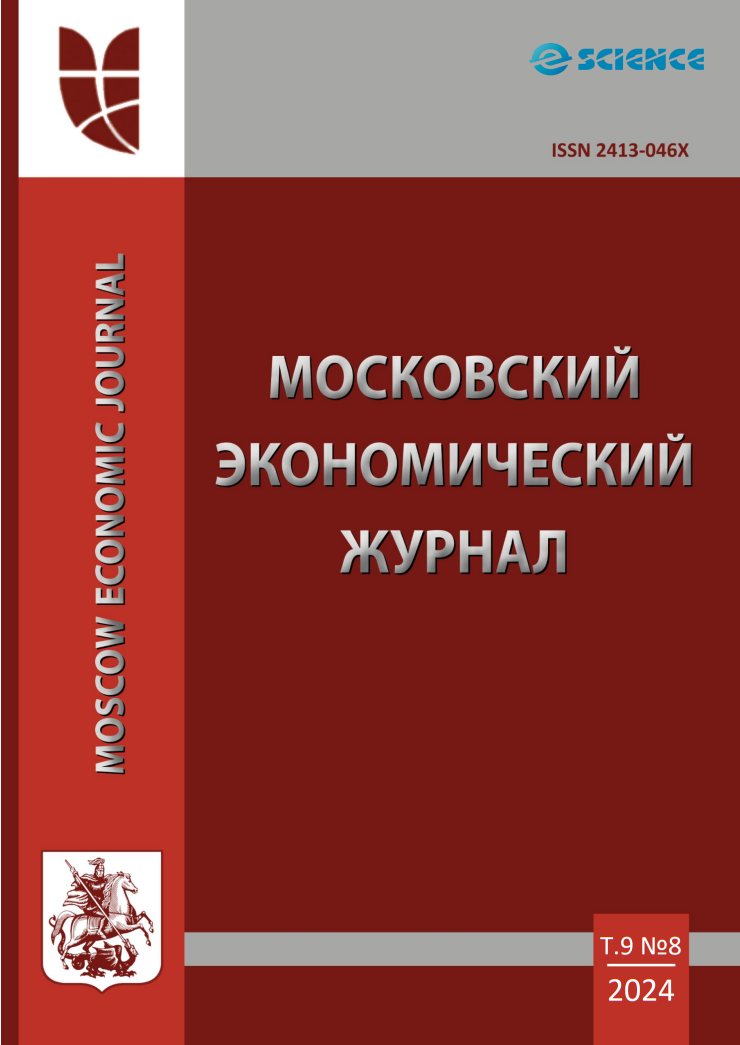UDC 33
The article discusses the use of virtual reality (VR) technologies as an innovative and effective methodological tool in the training of future economists. The main advantages of VR are described, such as the possibility of modeling economic processes in a realistic environment, the development of practical skills in conditions as close as possible to real ones. The examples of the use of VR in educational programs of economic specialties are analyzed, as well as the key features of the introduction of virtual reality into the educational process are identified. Special attention is paid to increasing the motivation and involvement of students through an interactive approach. The authors emphasize that the use of VR contributes to a deeper understanding of economic concepts and prepares students for professional activities.
virtual reality, training of economists, digital technologies in education, interactive learning, modeling of economic processes, VR in education, innovative methods, professional skills, training of future economists, virtual simulations
1. Vinnikova I.S., Kuznecova E.A., Sidorov A.N. Issledovatel'skoe obuchenie v praktike prepodavaniya finansovoy gramotnosti kak odin iz sposobov realizacii lichnostno-orientirovannogo podhoda. M.: Problemy sovremennogo pedagogicheskogo obrazovaniya. 2021. S. 3
2. Egorova A.O., Kuryleva O.I., Kurylev A.I., Plesovskih G.A. Povyshenie urovnya finansovoy gramotnosti u studentov v vuze: problemy i perspektivy // Ekonomika i predprinimatel'stvo. 2017. №2 10-1 (87). S. 388-395.
3. Kel'chevskaya N. R., Shirinkina E. V. Regional'nye determinanty effektivnogo ispol'zovaniya chelovecheskogo kapitala v cifrovoy ekonomike // Ekonomika regiona. 2019. T. 15. V 2. S. 4 65482.
4. Kovalenko A.I. Problematika issledovaniy mnogostoronnih platform // Sovremennaya konkurenciya. 2016. T. 10, № 3(57). S. 64-90. EDN: https://elibrary.ru/WMIXBN.
5. Orehova S.V., Plahin A.E. Metavselennye: perehod k novoy biznes-modeli ili obraz buduschego? // Upravlenec. 2023. T. 14, № 2. S. 35-46.
6. Shastitko A.E., Parshina E.N. Rynki s dvustoronnimi setevymi effektami: specifikaciya predmetnoy oblasti // Sovremennaya konkurenciya. 2016. T. 10, № 1(55). S. 5-18.
7. Shirinkina E.V Razvitie massovyh otkrytyh onlayn-kursov v cifrovoy srede // Ekonomika obrazovaniya. 2020. V 1 (116). S. 38-45.
8. Shirinkina E.V. Osobennosti formirovaniya edinogo cifrovogo obrazovatel'nogo prostranstva // Severnyy region: nauka, obrazovanie, kul'tura. 2019. V 3/4 (43/44). S. 102-105.
9. Kye B., Han N., Kim E. et al. Educational applications of metaverse: possibilities and limitations // Journal of educational evaluation for health professions. 2021. Vol. 18. Art. 32.
10. Papagiannidis S., Bourlakis M.A. Staging the New Retail Drama: at a metaverse near you! // Journal of virtual worlds research. 2010. № 2.5. P. 425-446.











